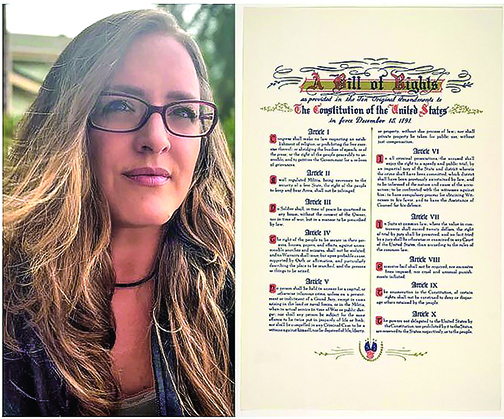ASHE IN AMERICA — OPINION
Oral arguments in Anderson v. Griswold took place on February 8th, and for the first time since the trial court, the public is speculating that this decision may be 9-0 for the intervenors — for Trump. The question before the court is:
Did the Colorado Supreme Court err in their ruling to remove President Trump from the state’s 2024 ballot?
As the party petitioning for Supreme Court review, President Trump’s attorneys went first, and they made multiple interrelated and distinct arguments for overturning the CO high court’s decision. The justices asked about the evidentiary record, specifically the lower court’s decision to admit the objectively biased January 6 Report and Professor Simi’s minority-reporting pseudoscience. The justices challenged many of Trump attorney Jonathan Mitchell’s arguments, which he handled expertly.
The Colorado petitioners had a rough time during oral arguments, fielding tough questions from even the most liberal justices. Ketanji Brown Jackson pontificated about insurrection — but even she had real issues with petitioner attorney Jason Murray’s 14th Amendment argument. She single-handedly rebuked Murray’s talking points that the text of the amendment is unambiguous.
JUSTICE JACKSON: “But doesn’t that at least suggest ambiguity? And this sort of ties into Justice Kavanaugh’s point. In other words, we had a person right there at the time saying what I’m saying, the — the language here doesn’t seem to include president, why is that? And so if there’s an ambiguity, why would we construe it to — as Justice Kavanaugh pointed out — against democracy?”
Murray’s response was a variation of “because we really want you to!” His case was revealed as hysterical nonsense about an insurrection that hasn’t been litigated, and the petitioners were exposed as calling on the court to usurp the powers of the state and federal legislatures.
Murray and the petitioners’ flimsy arguments that adorn this case were exposed and shredded by Alito, Gorsuch, and Kavanaugh. Justice Gorsuch had one of the toughest exchanges for Murray, who clerked for Gorsuch on the appellate court before clerking for Kagan in SCOTUS.
- MURRAY: “I’m imagining a situation where, for example, a former president was — you know, a — a president was elected, and they were, and they were ineligible to hold office —”
JUSTICE GORSUCH: “No. No.”
- MURRAY: “— but, nevertheless, they were put into that office —”
JUSTICE GORSUCH: “No. No. We’re talking about Section 3.”
- MURRAY: “And —”
JUSTICE GORSUCH: “Please don’t change the hypothetical, okay?”
- MURRAY: “I’m —”
JUSTICE GORSUCH: “Please don’t change the hypothetical. I know. I like doing it too, but please don’t do it, okay?”
Alito specifically dissected the inclusion of hearsay and criticized the findings of insurrection. Barrett focused on the Constitutional nuances of the arguments, as she usually does. Even Roberts and the leftie justices were conflicted by Murray’s arguments which, as I’ve discussed at length, comprise novel legal theory intended only to demonize and persecute President Trump and his supporters.
Secretary of State Jena Griswold was given 10 mins of time, which was argued by Colorado Solicitor General Shannon Stevenson. She objected to Justice Thomas, which was weird. Justice Roberts challenged her to defend the determination of “insurrection” and asked her to better define the standards. Stevenson struggled to articulate how a state disenfranchising just their own voters in a federal election — violating equal protections — can remain a constitutional act.
The one high point for Stevenson was that she urged the justices to review the findings of fact and conclusions of law with regards to “insurrection.” I have been consistently in favor of this request, as the evidentiary record does not hold up outside of the biased Colorado courts.
Justice Kavanaugh put a fine point on the lack of due process in this case, highlighting CO Justice Samour’s famous line in the dissent:
“There was no fair trial either … I have been involved in the justice system for 33 years now, and what took place here doesn’t resemble anything I’ve seen in a courtroom.”
It’s unlikely that the high court will uphold the lower court’s ruling, but it remains unclear how far they will go with the insurrection findings.
The decision is expected quickly as many other states have similar cases in limbo, awaiting this decision, and clarity is required before the Colorado primary on March 5. As of press time, unconfirmed “leaks” claim that the decision in chambers was, in fact, 9-0, but we are unable to confirm prior to press time.
My key takeaway from the entire 14th Amendment saga is that it appears the Constitution is still in effect. What a welcome surprise.
Ashe Epp is a writer and activist. You can find all her work at Linktree.com/asheinamerica

